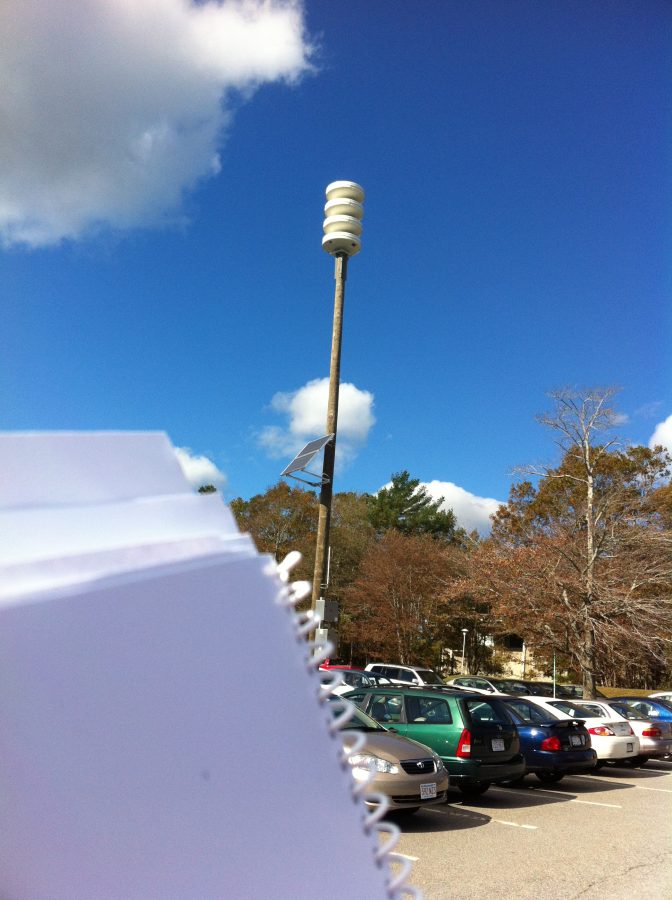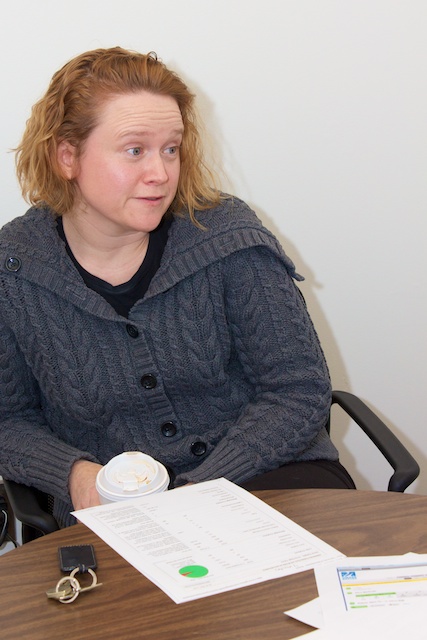Correction: In the original article there was a misattributed quote. Anne Marie McLaughlin, Emergency Management and Business Continuity Coordinator did not say, “When the earthquake hit, the fire alarms did not go off because it was not a fire, As a result, there was no way to clear the buildings except to go through each of them physically, which put people in harm’s way.” Nor would the department she represents instruct people to search a building if it would mean putting people in danger. (2/2/2012 7:10 p.m.)
Since the Virginia Tech massacre, UMass Boston has made emergency management and response a high priority, as evidenced by the appointment of Anne Marie McLaughlin to the Emergency Management and Business Continuity Coordinator position in 2010.
“We [UMass Boston] are following national trends,” McLaughlin said. “The Virginia Tech incident of 2007 prompted schools nationwide to re-evaluate their emergency response systems.” In that incident, a shooting took place at Virginia Polytechnic Institute and State University in Blacksburg, Virginia.
McLaughlin’s office cooperates with many departments including Public Safety, Environmental Health and Safety, Student Affairs Health Services and Facilities in the operation of the UMass Boston Alert System. “We have adopted an all-hazards approach,” McLaughlin said. “We try to consider all possible worst-case scenarios. By coordinating the efforts of all these safety-related departments, we are able to prepare for a myriad of possible emergencies.”
The UMass Boston Alert System features text messaging, email messaging, voicemail, Twitter tweets and Facebook posts. “We encourage people to add their cell phone numbers to the UMass Boston Alert System,” said McLaughlin.
The earthquake that shook the campus last summer demonstrated some shortcomings of the alert system. Students evacuated the buildings but were unaware of the cause for alarm or what to do once they had exited.
An external speaker system like those in use at UMass Dartmouth and UMass Amherst is being installed to overcome this flaw in the system. The speakers could be installed atop buildings or set high up on a pole. Administrators will be able to access the speaker system via the Internet, enabling them to make emergency announcements from any location with Wi-Fi access. “There is no magic box that you have to be at to activate the system,” McLaughlin said.
The exact number of speakers to be installed and total cost to the university is still unknown. The Facilities department is working with developers to determine how many speakers are necessary to broadcast a message campus-wide without causing a noise disturbance in Dorchester.
The speakers will enable the university to make emergency specific announcements, quickly alerting the entire campus to the specific threat and its location. Those in charge of activating the system-Public Safety, Communications and Emergency Management- will have a wide variety of pre-recorded messages to choose from.
Another new feature being integrated into the UMass Boston alert system is the desktop alert system, which should be operational by the end of the Spring 2012 semester. The system works by causing a message to pop up on the screen of any student using the university’s internet service, alerting the user to the danger or emergency.
Students can register on the UMass Boston alert system at www.getrave.com/login/umb. One may elect to add a cell phone number but choose to only receive text notifications.






















































